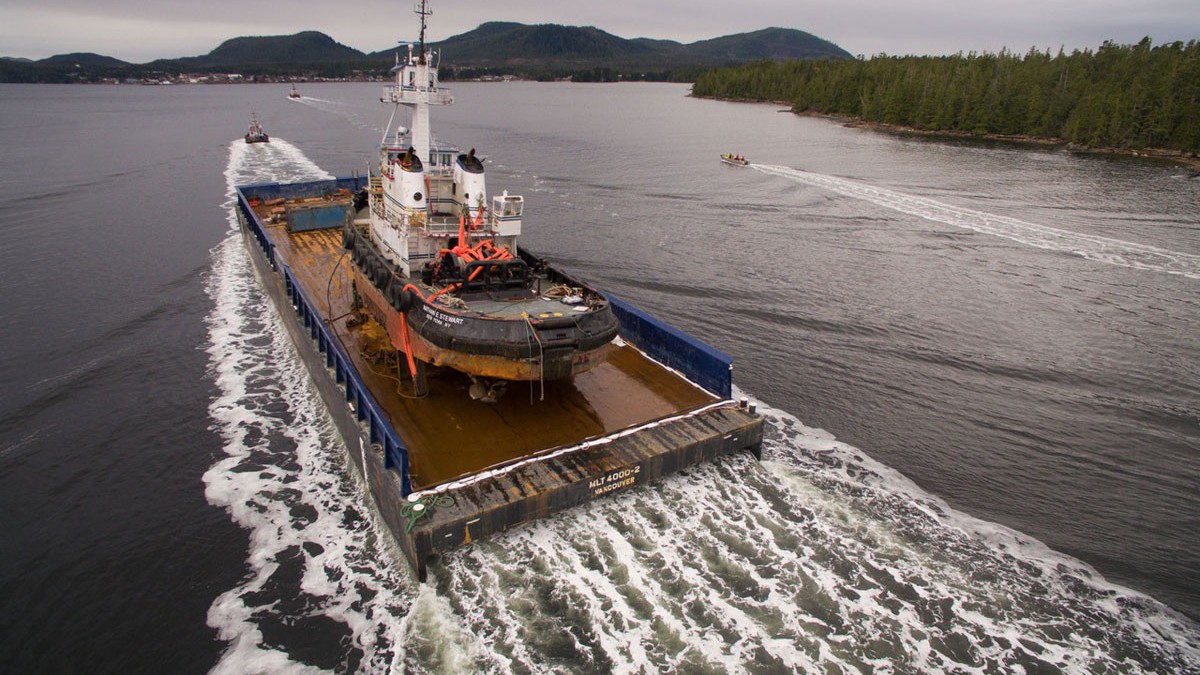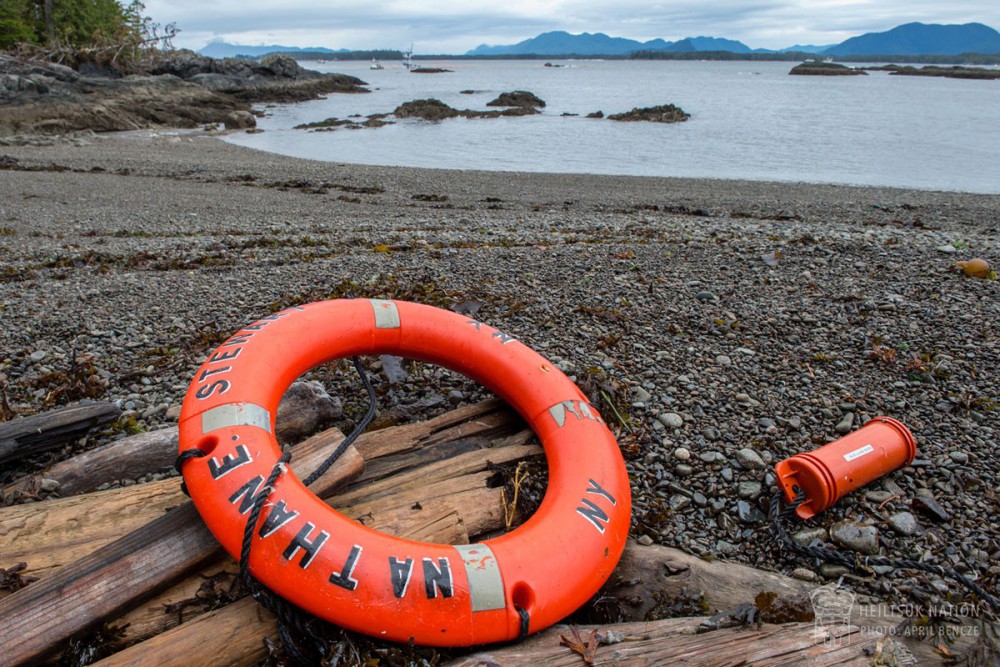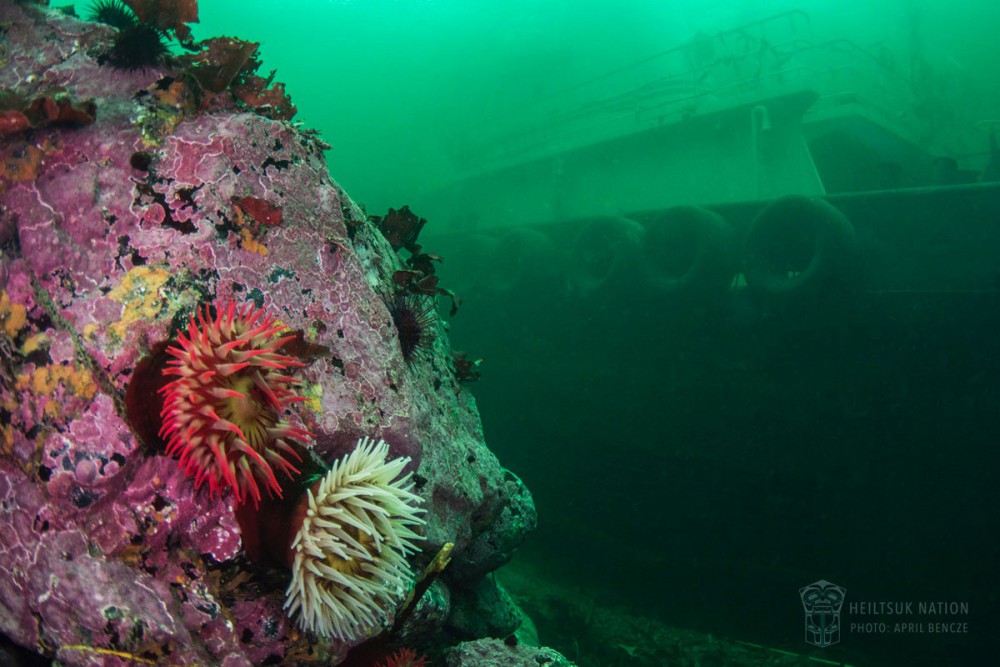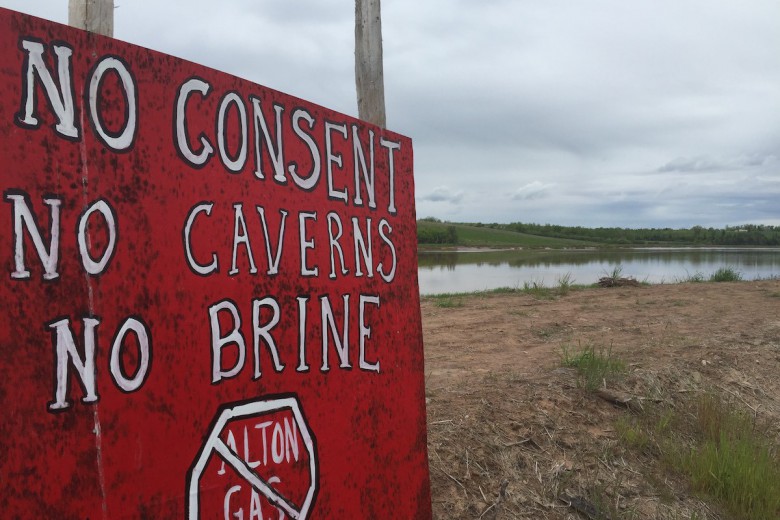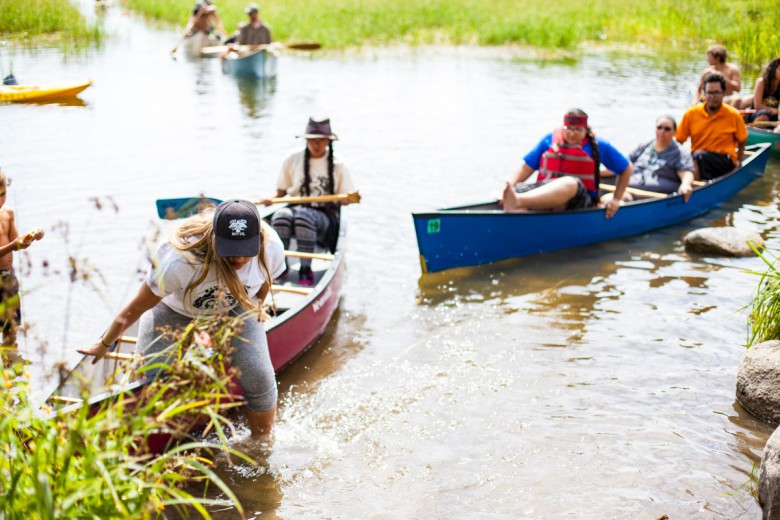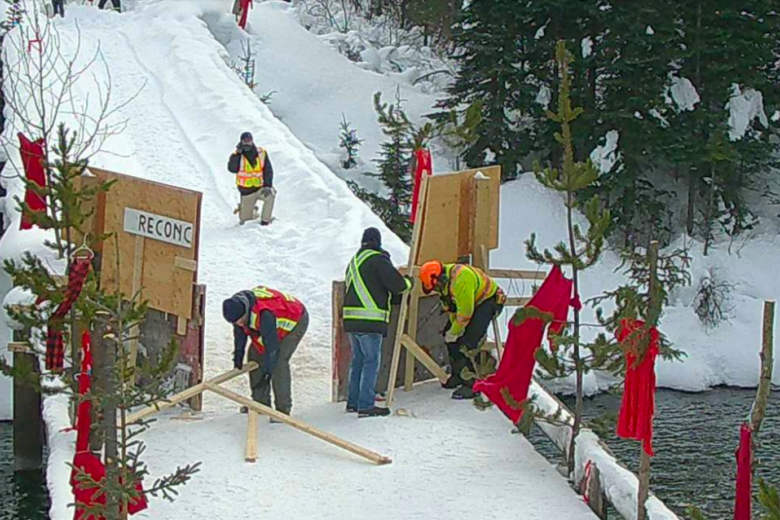A different kind of sentencing hearing took place today on B.C.’s central coast, in an area known as the Great Bear Rainforest.
Three years after the Nathan E. Stewart sank, spilling 110,000 litres of diesel, effluent, and engine oil into Heiltsuk fishing grounds, the Indigenous nation is still waiting for justice. Canada charged Kirby – the Texas-based corporation that owns the ship – with nine criminal violations, including violating the Fisheries Act, the Migratory Birds Convention Act, and the Pilotage Act, for not having a pilot on board the ship.
The company pled guilty to three of those nine counts, and was sentenced today – though the penalties, $2.9 million, will do little to disrupt business as usual for Kirby, a multi-billion dollar company and one of the world’s largest marine shipping companies.
“Today we’re witnessing the sentencing of Kirby. No matter what the ruling is, this is us, showing who we are, and starting our healing process.”
But business as usual looks very different when an Indigenous community is at the helm. According to Heiltsuk law, justice begins when offenders sit together with all of the parties impacted by the offence; a talking stick is passed so everyone has an opportunity to speak and to be heard.
This morning, in the Bella Bella Community School gym, Kirby representatives sat together with first responders, fishers, and community members. They heard testimony from victims of the spill, and were invited to witness first-hand how the community is struggling to recover from an accident that – far from Houston, where the company is based – may have seemed like a minor hiccup in Kirby’s global operations.
The community has suffered devastating losses – including the closure of fisheries that once supported many families in the remote coastal village. Surrounded by drummers, and dressed in her family’s regalia, Heiltsuk councillor Megan Humchitt fought back tears as she spoke. “Today we’re witnessing the sentencing of Kirby. No matter what the ruling is, this is us, showing who we are, and starting our healing process.”
The October 13, 2016 Kirby spill exposed holes in Canada’s touted “world class” oil spill response regime. After the crash, 16 hours passed before official responders arrived on the scene, where Heiltsuk mariners were already hard at work trying to mitigate the worst of the effects of spreading diesel as it seeped into shoreline aquaculture beds. Following the emergency response phase, the job of conducting the scope of the environmental impact assessment was assigned to the polluter.
“Think about that,” says Lisa Fong, legal counsel to Heiltsuk Nation. “If the polluter takes the lead on an impact assessment that’s supposed to determine what the damages are, and what remediation there is going to be, where’s their interest? Their interest is going to be in limiting their exposure. It’s a conflict of interest. It’s a problem, and we shouldn’t be operating in this way.”
Determined to nurse their precious fishery back to health, the Heiltsuk have been carrying out their own, robust environmental impact assessment of the spill impacts. The Heiltsuk investigation involved marine scientists and traditional harvesters and knowledge keepers, who worked together to assess the condition of the seabed and foreshore, determine what was safe to harvest, and plan how they could mitigate the damage. Given that the area, Gale Pass, has been a breadbasket for their nation for countless generations, the Heiltsuk’s assessment was done with an eye to the long-term health of the ecosystem on which they depend. The ongoing process has cost the community hundreds of thousands of dollars.
Yet, in today’s hearing, compensation for those expenses was not on the table. The nation are concerned that the relatively light fines imposed by Canada will be seen as justice served, when in fact Heiltsuk concerns will not be addressed by a light financial settlement. The Heiltsuk have filed a civil suit against Canada, B.C., and Kirby Corporation, that aims to address deeper issues in Canada’s oil spill response, pollution laws, and compensation regime. Their concerns are particularly urgent, as new pipeline and oil tanker projects, like the Trans Mountain pipeline expansion, are approved.
“If the polluter takes the lead on an impact assessment that’s supposed to determine what the damages are, and what remediation there is going to be, where’s their interest? Their interest is going to be in limiting their exposure.”
In addition to their civil suit, today the Heiltsuk launched an open letter from Heiltsuk chief Marilyn Slett to the CEO of Kirby. They placed ads in Houston newspapers targeting Kirby, and launched a petition site asking citizens to stand with Heiltsuk in calling on the company to take full responsibility for the spill. The tactics are a response to the expensive and complex legal battle the company has engaged in with the Heiltsuk community.
Today, as they sat together and bore witness to community stories, the Heiltsuk hoped that the company would listen, learn, and make amends.
“I would much rather work with you to make things right, than to keep fighting you in courtrooms and the court of public opinion, in the pursuit of justice,” said Slett in her open letter.
However, in an interview, she adds, “But the Heiltsuk will do what we need to do to get justice for our community, and to protect the interests of other coastal communities that could experience a devastating oil spill in the future.”


